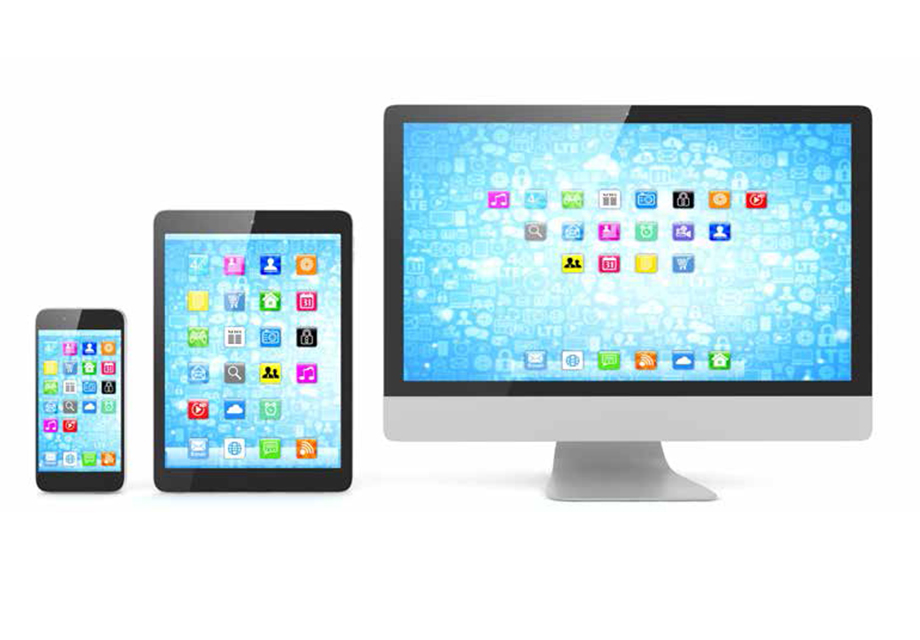How Mobile Apps Improve Productivity

With the constant growth in the power of tablets and phones, there has been a constant shift in the preference from traditional websites to gadget applications.
Apps: Convenience on Steroids
According to research, mobile users spend some 86 percent of the time on their smartphones or tablets, accessing their mobile apps. The apps are not only used as a source of daily information; they also form a platform for the interaction between companies and their field force and consumers. Some 68 percent of users employ apps this way.
Companies use apps both inside and outside their organizations. Venturing into mobile app development depends on the company and industry. In many cases, mobile websites alone will not match the opportunities that mobile apps offer by increasing their outreach to their staff, field force, customers and the public at large.
For financial services companies, a mobile website is not enough. Use of mobile websites alone will minimize a company’s optimal engagement levels, which in turn can reduce its productivity. To provide such services and products effectively, and stay ahead of the competition, you need an enterprise mobile app.
Websites are losing more and more ground to mobile apps. Consumers have grown accustomed — or perhaps addicted — to using their devices for shopping and other activities. The constant pop-up ads that appear on websites are pushing customers to download mobile applications.
On the company and firm side, professionals increasingly consider technological gadgets as extensions of their offices. They offer customers constant communication and access, inside or outside the office, at any time of the day or night. Consider it convenience on steroids.
How Mobile Apps Improve Productivity
One of the most significant benefits of apps vs. websites is improved productivity. The only way an organization can increase its profitability is by increasing productivity, reducing costs and minimizing waste. These outcomes are possible only when there is efficient communication within the organization so that everyone is focused on achieving specific goals.
Here are some ways that apps can make that happen.
- Enhanced communication — Mobile apps make communication with financial professionals easier, quicker and smoother. Also, training and access to organizational resources are faster and more efficient than ever. According to one study, productivity in organizations that use mobile apps will increase by 20 to 40 percent. Apps also enable the organization to record, produce and use its data easily.
- Increased employee productivity — According to Fliplet, a study of more than 200 American federal workers in 2013 found that, when given access to mobile tools and portals, each employee will gain an extra 364 hours of productive time per year. Not only that, but they also report feeling more efficient and engaged. And, according to a study by Accenture, the overwhelming majority of executives agreed that mobile apps had made a significant impact on their businesses. In fact, 82 percent said that mobile apps are an integral part of their organizations, and 81 percent believe mobile apps will be the key to unlocking vital data from across their businesses.
- More efficient dissemination of information — Enterprise applications create a link between the company and the external world. Information such as changes in business operations is sent to individual customers and professional financial apps through push alerts. This faster, more efficient dissemination of the information and services a company offers outdoes what traditional websites can offer. Financial services customers like to keep in constant touch with their company to monitor their finances and weigh developments that might affect them. Customers need an easily accessible record to review their financial status so they can make decisions. And financial professionals will enjoy the opportunity to review their pending case requirements, case status, product updates, interest rates and compliance. They will also enjoy quick and easy access to notices and bulletins.
- Access to information, even when offline — With mobile apps, everyone can access their information both online and offline. With traditional websites, information can be used only when the desktop or laptop is accessing an Internet connection. But with apps, data and updates are locally stored within the app on the device until the device is reconnected to the Internet for further updates. People save a lot of time by using mobile apps because they can carry out their tasks from any location, even when they are offline.
- Increased revenue — Finally, mobile apps increase opportunities for a company to gain more revenue — sourced from services that are app-enabled and tailored to the company. For example, financial services companies are allowing mobile money transfer through their apps. This technique can yield an increase in organizational revenue because you can charge for such a money transfer.
Most service industries are now implementing the use of mobile apps. Their time has come. And it’s time for all financial services companies and firms to get on board as well. After all, profitability and ultimate success largely depend on the constant and effective interaction with our field force and customers alike. And right now, with regard to interaction, mobile apps are about as good as it gets.
Hoopis Performance Network Can Develop Your Customized Educational App
Today, how financial professionals can access their training and educational resources is just as important as the material itself.
HPN can provide your firm’s customized, branded virtual training via both website and mobile application delivery, providing your team with 24/7 access via any computer, smartphone, or tablet. Repetition is the mother of all learning, and now with HPN’s customized mobile app, it’s easy for everyone to get the answers they seek with only a few clicks from their fingertips.



